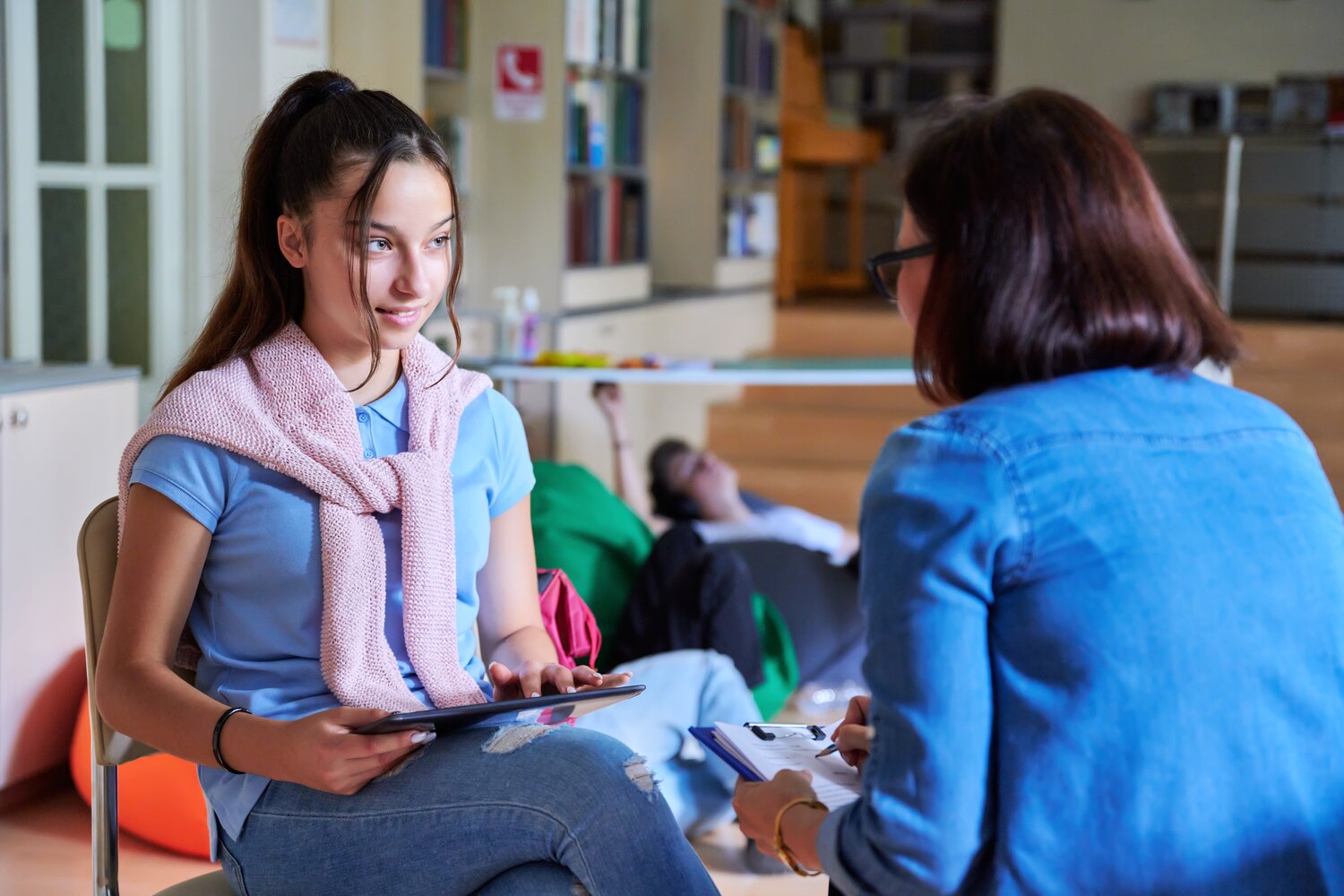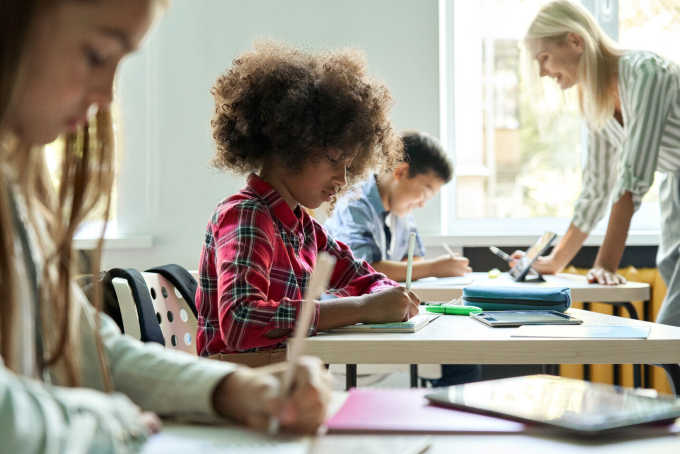Whether you are a teacher or a caregiver for a student with autism, one of the problems you may encounter is assisting that youngster in the development of social skills that other students find to be second nature. Students who struggle with autism often have poor social skills, which can make it difficult for them to communicate effectively, establish friends, and develop connections. Students with autism have a lot of room for improvement when it comes to their social skills, but fortunately, there are a lot of activities and tactics that may be applied.
Why is it important to teach social skills to students with autism?
A person’s ability to successfully communicate and engage with other people is made possible by their social skills, which are an essential part of life. Children with autism frequently have difficulties with social skills, which makes it difficult for them to engage in social interactions, build connections, or take part in activities that involve groups of people. Because of this problem, as adolescents become older, it may become more difficult for them to obtain work, to do well in college, or simply to take part in normal day-to-day activities.
It is crucial to provide kids with autism with social skill instruction in order to improve their quality of life and increase their relationships with their peers. Students who have autism who have strengthened their social skills may have more self-assurance, less anxiety, and a greater sense of connection to the world around them.
What are common social skills deficits in students with autism?
Students who have autism may struggle with a variety of aspects of social interaction, such as comprehending and utilizing nonverbal communication, verbal communication, social cues, engaging in reciprocal conversations, making and maintaining eye contact, and comprehending and utilizing body language, among other aspects.
Difficulty understanding and using nonverbal communication
The ability to comprehend and use nonverbal modes of communication, such as facial expressions, body language, and gestures, is challenging for a significant number of autistic pupils. It may be challenging for individuals to recognize these signs in themselves and others, as well as to employ them when expressing their own feelings.
Difficulty understanding and using verbal communication
Students who have autism may also have difficulty with verbal communication. They might have difficulty expanding their vocabulary, interpreting idiomatic phrases or metaphorical language, and developing their language skills.
Difficulty understanding and using social cues
Students who have autism may have difficulty reading social signs such as determining if another person is pleased, sad, or furious. It’s possible that they won’t comprehend the larger context of a scenario or won’t be able to identify social standards that are generally accepted in social contexts.
Difficulty engaging in reciprocal conversations

Conversations that go back and forth might be challenging for some autistic adolescents who are in school. It’s possible that they are unable to reply to others, that they interrupt constantly, or that they talk excessively about their hobbies while not allowing others to speak.
Difficulty making and maintaining eye contact
Another aspect of social interaction that may present difficulties for kids with autism is the ability to initiate and sustain eye contact. Because they can find it awkward or distracting, you should steer clear of making eye contact with them completely.
Difficulty understanding and using body language
Understanding and making appropriate use of body language can be problematic for many autistic students, just as it is for those who communicate nonverbally. They may have difficulty understanding if someone is joyful, sad, or furious based just on their body language.
How can teachers teach social skills to students with autism?

Students who have autism can be taught a variety of social skills by their instructors and caregivers through a variety of different approaches. These are a few ways that have shown to be effective:
Use explicit instruction
In explicit training, social skills are typically broken down into a series of steps that are both manageable and straightforward. Direct instruction is one method that teachers may use to guide pupils in developing proper behaviors for a variety of different social settings.
Utilize visual supports
Students who have autism may benefit from having access to visual tools such as drawings, films, or diagrams in order to better comprehend and recall social skills. Students may also benefit from using visual assistance in order to transfer their abilities to new contexts.
Use role-playing and social stories

Students who have autism can benefit from practicing their social skills in a setting that is both safe and encouraging by participating in role-playing activities and reading social stories. The term “social tales” refers to brief narratives that focus on a particular social setting and offer guidance on how individuals should behave in that setting.
Incorporate social skills into the curriculum
The incorporation of education in social skills into the curriculum can be an efficient strategy to ensure that all students receive the training they require to cultivate the social skills they will need in their future lives.
Provide opportunities for practice
Providing autistic kids with the opportunity to develop their skills is the final step.
Their ability to interact with others effectively is essential for skill generalization. Role-playing, social games, and activities done in groups are all examples of activities that may be facilitated by teachers to provide students the opportunity to hone their social skills in an atmosphere that is both secure and encouraging.
What are some general tips for teaching social skills to students with autism?
In addition to the tactics shown here, there are also some basic pointers that might be of use to educators and caregivers who are attempting to educate individuals with autism good social skills.
Come along with 200k+ families!
Explore the endless possibilities of learning!
Download for Free.
Be patient and positive
Teaching pupils who have autism social skills might take time and tolerance on the teacher’s part. Maintaining a good attitude and offering praise and encouragement for even the smallest of gains is absolutely necessary.
Be consistent and use cueing
When educating individuals with autism social skills, consistency is of the utmost importance. It is important for caregivers and educators to utilize prompts and cues in a regular manner in order to reinforce good social actions and assist kids in remembering social skills.
Be mindful of the requirements of the senses
Because of the prevalence of sensory sensitivities among autistic individuals, it is critical to be aware of their requirements and to offer appropriate accommodations wherever possible. The surroundings should also be taken into consideration, and circumstances that might lead to sensory overload should be avoided by teachers.
Be conscious of the unique characteristics of each person

When teaching social skills to individuals with autism, it is critical to take into account each student’s unique set of strengths and difficulties in order to achieve optimal results. The teaching that teachers provide should be adapted to fit the specific requirements of each individual learner.
Take up the challenge as a group
Last but not least, when it comes to teaching individuals with autism social skills, a method based on teamwork might be helpful. It is possible for teachers, carers, and therapists to collaborate in order to devise tailored strategies that cater to the specific requirements of each particular kid.
Including activities that focus on social skills for people with autism can be a useful method for both teaching and reinforcing social skills. A few examples of activities that might help autistic individuals improve their social skills are as follows:
Social skill games for autism
- Worksheets relating to autism social skills
- Social skills scenarios
- Social skills and autism
- Preparatory play for autism
- Worksheets to help children with autism develop their social skills
- Behavior & social skills
- Counseling for social skills
A wide range of important social skills, including knowing when to wait one’s turn, starting discussions, and recognizing feelings, can be acquired via participation in the activities described below. They are also capable of being adapted to cater to the requirements of certain pupils.
In conclusion, educating individuals with autism social skills is crucial if you want to improve their quality of life and increase the amount of contact they have with their peers. Teaching social skills may be accomplished through a number of different approaches and activities, such as explicit instruction, role-playing, visual aids, and social storytelling. While teaching social skills to individuals who have autism, it is essential to have patience, be consistent, and be mindful of the unique characteristics of each student. We can assist kids who have autism in developing the necessary social skills to be successful in school and beyond if we collaborate with one another and use techniques that are supported by research.




